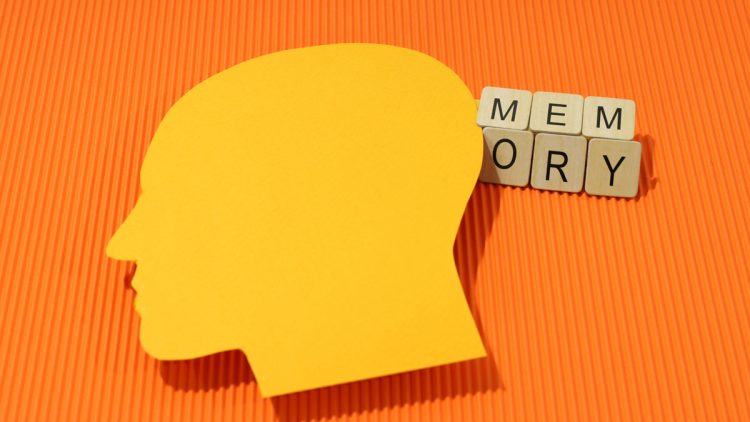Can A Stroke Cause Memory Loss?
You may be experiencing dementia if memory loss is interfering with your ability to function normally. However, memory loss is more commonly found in older stroke survivors.
Can Memory Loss Result From A Stroke?
Yes, memory loss can occur in some stroke survivors. Memory loss can ultimately impact an individual’s visual, verbal, and informational skills.
Verbal issues include forgetting names, stories, and feeling at a loss for words. Visually, individuals may for forget faces, shapes, and even familiar routes. Memory of information may be forgotten, as well as the ability to learn new things.
Common Memory Loss Symptoms
Here are some generic symptoms of memory loss:
- Short-term memory issues.
- Getting lost in familiar places.
- Misplacing household items.
- Loss of interest in people and things.
- Poor judgement overall.
- Trouble following directions.
- Forgetting events.
- Trouble performing familiar tasks.
- Language issues.
- Changes in sleep patterns.
- Delusions or hallucinations.
- Trouble reading and writing.
- Personality and behavior changes.
Types Of Memory Loss After A Stroke
There are three unfortunate types of memory loss that are often associated with individuals who have suffered a stroke. Let’s look at these types below.
Dementia
Dementia will undoubtedly interfere with daily functioning as it is a deterioration of cognition. There are a few different types of dementia, including Alzheimer’s disease, which is the most common.
Vascular changes, such as a stroke, can result in vascular dementia. This is the second most common type of dementia today.
Delirium
A sudden state of confusion that affects attention is known as delirium. Thankfully, this is oftentimes a reversable state.
Stroke, infection, sudden illness, electrolyte changes, dehydration, liver/kidney failure, and drug toxicity can cause delirium.
Mild Cognitive Impairment
Mild cognitive impairment is the stage right between normal cognition and dementia.
Typically, daily functioning will not be impacted, but the individual will begin experiencing impairment. Nearly half of these individuals experiencing mild cognitive impairment will eventually progress to dementia within 3 years.
Can Memory Loss From A Stroke Be Treated?
Memory can improve as time goes on, either naturally or through rehabilitation. However, symptoms can sometimes last for years. Memory loss can improve by taking regular medications for things like depression, anxiety, or sleeping problems.
Tests can be done to determine if a specific medical condition has led to your memory loss, according to Stroke.org. Dementia, however, usually get worse over time.
In order to stimulate your brain, it’s suggested to attempt new hobbies that get both the mind and body moving. Exercise can improve your physical and mental health.
When Is It Time For Memory Care?
Dementia and Alzheimer’s are very familiar types of memory loss circumstances that will be included in memory care. This is a dedicated care that will go through a variety of services that will depend on the seriousness of the symptoms, like 24-hour emergency call service.
Memory care will go further than what is typically offered in assisted living. Housekeeping, the preparation of food, and clothes washing services are generally provided, but the level of needed assistance with daily activities is increased. There also may be times when daily activities are designed specifically for a person that will allow them to reconnect with their interests or old hobbies.
As the communities can recognize the care challenges for elderly people who have dementia or Alzheimer’s, they may just provide memory care or, for continuing care communities may provide a neighborhood strictly for memory care. More often than not, it is these communities that will have fixed design elements that will lower the stress for those who have dementia or Alzheimer’s.
These elements will usually include a circular neighborhood design that permits the resident for safer wandering, memory boxes outside of their apartments, with natural lighting. About 6 out of 10 elderly people with Alzheimer’s will begin to wander around the community and it is specifically designed to lower the chances of being harmed by wandering, and that may done simply adding security alarms or doing welfare and safety checks.
About Ventana Winds
Ventana Winds Retirement Community is a member of SLS Communities and offers Assisted Living and Memory Care services In Youngtown, Arizona.
More Articles About Senior Living
- How Much Does Memory Care Cost?
- How To Talk To A Parent With Dementia
- Memory Care Facilities Near Me
- Best Golf Clubs For Seniors
- Questions For Assisted Living Interviews
- How To Look Younger At 50
- Retirement Party Ideas
- Can I Retire At 60 With 500K?
- Retire In Youngtown AZ
- Retirement Wishes – 100 Quotes Continued
- Assisted Living vs Memory Care
- Retirement Wishes For A Boss
- Is It Possible To Retire Early At Age 30, Age 40, or Age 50
- Differences Between Independent Living Vs Assisted Living
- Senior Living Youngtown
- How Much Does Assisted Living Cost In Youngtown, Arizona?
- Best Places To Retire In Youngtown Arizona
- Assisted Living Peoria
- What Is Memory Care? The Difference Between Alzheimer’s and Dementia.
- What is Assisted Living?
- What is Arthritis?
- Benefits of Assisted Living
- What is Memory Care?
- Senior Retirement Living Options
- Checklist For Assisted Living
- Best Place To Retire In Sun City Arizona
- Can The IRS Seize My Retirement Money?

